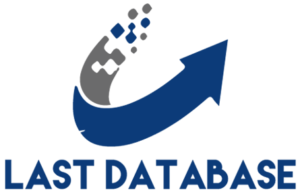Copyright: Guardian Angel or Cash Cow?
Want to take control of your prompts and get more out of AI tools? Take the online course on December 19
“Copyright is outdated!” was the quote that led to a nice dialogue about creative professions and the role that copyright plays in it. Is it really outdated? And why is it so important that copyright exists? In this article we explain what copyright is, and what you can do with it as both the creator and the entrepreneur. We highlight the perspective of a lawyer and the perspective of a creator and customer.
What does copyright entail?
Copyright is roughly the right that the creator of a creative work receives as soon as that work is created. For example, when a text is written or a photo is taken. The work must meet the “work test” in order to be protected by copyright. The work test means that a work must have its own original character and a personal stamp. This means that the form of the work may not be borrowed from another work and that creative choices must have been made. Copyright protection is therefore obtained quickly.
Guardian angel or cash cow?
For many entrepreneurs, copyright is unknown territory. If an entrepreneur has something creative made, copyright can be a millstone around his neck. On the other hand, if an entrepreneur makes something creative himself, copyright can be a means to protect his intellectual property.
In every issue there are different sides to the story. And for each side there are strong ethical, commercial and/or legal arguments for or against invoking copyright.
Copyright as guardian angel of the creative professions
The creator decides what happens to a work. That is to say, he is the only one who may decide whether the work is made public (“made available to the public”) or reproduced. Reproduction is a broad concept in copyright law. It does not only mean reproducing, but also, for example, editing or translating.
Does someone make the work public without permission, and/or does someone reproduce the work without permission? Then there may be a copyright infringement. Simone explicitly says “may” here, because that must always be assessed on a case-by-case basis. In addition, there are also the legal exceptions to copyright. This means that in san marino email list 9210 contact leads some cases where a work is made public or reproduced without permission, there is no copyright infringement. Think of the right to quote.
What can you do in case of copyright infringement?
If there is a copyright infringement, the creator can do several the chinese rainbows, marketing according to confucius things. He can have the unauthorized use stopped, but also, for example, claim compensation for the time that his work was used unauthorized.
Examples of clear copyright infringements:
You are an illustrator and have your portfolio on your website. Suddenly you see your illustrations on children’s clothing in a shop.
You are a composer and have some tracks on your Soundcloud and you find out that a big perfume brand has used your track in a YouTube video.
You are a photographer and you see that your client has used your photo but has applied a filter to it, while your general terms and conditions clearly state that your photos are not intended to be edited.
Copyright also promotes creativity
Copyright gives the creator control over his work, because in ao lists principle he is the only one who decides what happens to his work. However, there are more reasons why it is good that copyright exists:
Copyright encourages creativity and innovation. You are not allowed to make something that is already protected by copyright, so you have to make something different/different.
By protecting creators from unauthorised use, they receive the financial reward they deserve for their work. This incentive can lead to more creative expressions.
Copyright protects the moral rights of the creator, also called “personal rights” in copyright law. Think of the creator’s right to object to lack of attribution, and the right to object to any infringement of his work that is harmful to his reputation.
Copyright leads to the promotion of culture.







